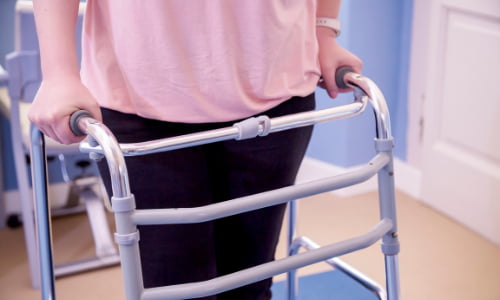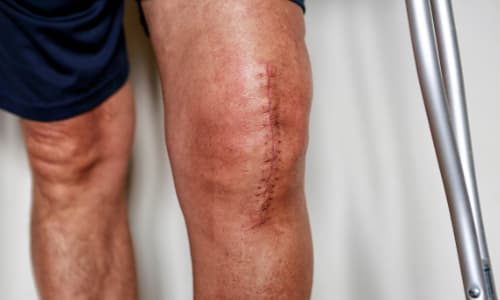Enhanced Recovery After Surgery for Elderly
“Enhanced Recovery After Surgery for Elderly” was written by Lauren Whitman, RDN & edited/reviewed by Aly Bouzek, MS, RDN.
What is Enhanced Recovery After Surgery?
Enhanced Recovery After Surgery, also called ERAS, is a newer way of caring for patients who will have surgery.
ERAS methods are different from traditional surgery methods. Let’s learn more!
Enhanced Recovery After Surgery focuses on:
- Improving a patient’s preparations done before surgery
- Improving the procedures during surgery
- Improving the recovery process after surgery
ERAS is evidence-based, which means that trustworthy scientific studies have found that ERAS improves surgery recovery and lowers medical costs. (1) Enhanced Recovery After Surgery is safe and may be very beneficial for the elderly.
The goal of Enhanced Recovery After Surgery is to:
- Lower the amount of time spent in the hospital
- Support early mobility after surgery
- Improve recovery
ERAS is especially important for older adults, who are at higher risk of complications during and after surgery.
Is Enhanced Recovery After Surgery New?
ERAS is a newer model of patient care. In the mid-1990s, a Denmark surgeon named Henrik Kehlet, began studying different surgical practices. (2)
He led a group of surgeons that focused on:
- Improving results for patients who had surgery
- Decreased hospital recovery time
- Lowered the chances of surgery complications
The Enhanced Recovery After Surgery model of care was officially created in 1997 and is described as a positive change from “managing diseases” to patient-centered care throughout the surgery process.

Why is Enhanced Recovery After Surgery Important for the Elderly?
As we age, we are more likely to have or develop certain diseases and conditions like cancer, cardiovascular disease, high blood pressure, degreased muscle mass, neurodegeneration, and frailty.
Frailty is a term used to describe older adults that are more sensitive to injury and needing surgery.
It is estimated that 10% of patients between 65 and 75 years old are frail, but this increases up to 40% in patients that are 80 years or older. (3)
Older adults, and frail older adults are more at risk to complications after surgery. This could lead to longer hospital stays, lower quality of life, increased healthcare costs, etc. (3)
Fortunately, ERAS has been shown to (4):
- Reduce hospital stays
- Reduce surgical complications
- Reduce medical costs
- Allow normal daily activities and normal bowel function to return earlier
ERAS may be especially helpful to older adults because it involves a health care team (including surgeons, nurses, dietitians, anesthetists, physiotherapists, and others) to help improve a patient’s journey through surgery.

How Does Enhanced Recovery After Surgery Work?
The main areas of ERAS focus on:
- Pre-hospital admission
- Pre-surgery/preoperative
- During surgery
- After surgery
Pre-hospital Admission
In the weeks or months before surgery, ERAS health care teams will evaluate your health. The health care team may offer nutrition advice and help set goals so that you are at your healthiest before surgery.

Pre-Surgery
In the days and hours before surgery, ERAS has you get proper counseling and nutrition help (4).
Depending you and the type of surgery, certain food, vitamins, and minerals may be recommended to improve your nutrition status before surgery.
Those undergoing surgery with a nutrition status of “underweight,” “malnourished,” “recent significant weight loss,” etc. have been shown to stay in the hospital longer and experience higher health care costs.
Check out our resource on Understanding Loss of Weight in the Elderly to learn more.
It has also been shown that patients with nutrition deficiencies who are having surgery, had a higher 90-day mortality (death rate) and overall poor survival than those without nutrition deficiencies before surgery. (4)
Additionally, ERAS generally avoids the traditional fasting before surgery, and instead recommends carbohydrate-loading (consuming lots of carbohydrates) with clear carbohydrate drinks up to 2 hours before surgery. (4)
This is very different from the traditional way of fasting starting the midnight before surgery.
Talk with your doctor about what’s best for you before changing any pre-surgery preparations.
During Surgery
During surgery, ERAS wants surgeons to use smaller surgery techniques instead of making large incisions. (4) Additionally, the continued use of standardized anesthetic and analgesic (pain reliever) regimens is suggested.
For some surgeries and patients, ERAS has healthcare staff manage fluids as needed (instead of large IV fluid amounts) and to remove tubes and drains as quickly and as safely as possible. (4)

After Surgery
The last key element of ERAS focuses on post-surgery. Depending on you and the surgery, ERAS promotes movement, food, and drinks as soon as surgery is done.

Evidence-Based Surgeries
Different research studies using ERAS have shown promising results in colorectal surgery, vascular surgery, thoracic surgery, radical cystectomy, and others!
Conclusion
Check out ERAS USA if you are interested in learning more about Enhanced Recovery After Surgery. And don’t forget to check out our article on 7 Essential Lessons for Caring for the Elderly that may be helpful as well!
Resources:
- Ljungqvist O, Scott M, Fearon K. Enhanced recovery after surgery: A review. Journal of the American Medical Association Surgery. 2017;152(3):292-298.
- Taurchini M, Naja C, Tancredi A. Enhanced Recovery After Surgery: A patient centered process. Journal of Visualized Surgery. 2018;4:40.
- Mistry P, Gaunay G, Hoenig D. Prediction of surgical complications in the elderly: Can we improve outcomes? Asian Journal of Urology. 2017;4(1):44-49.
- Melnyk M, Casey R, Black P, Koupparis A. Enhanced recovery after surgery (ERAS) protocols: Time to change practice? Canadian Urological Association Journal. 2011;5(5):342-348.

Recovery following surgery is an extensive process, especially as one becomes older. It’s good to know of methods that can help this process.